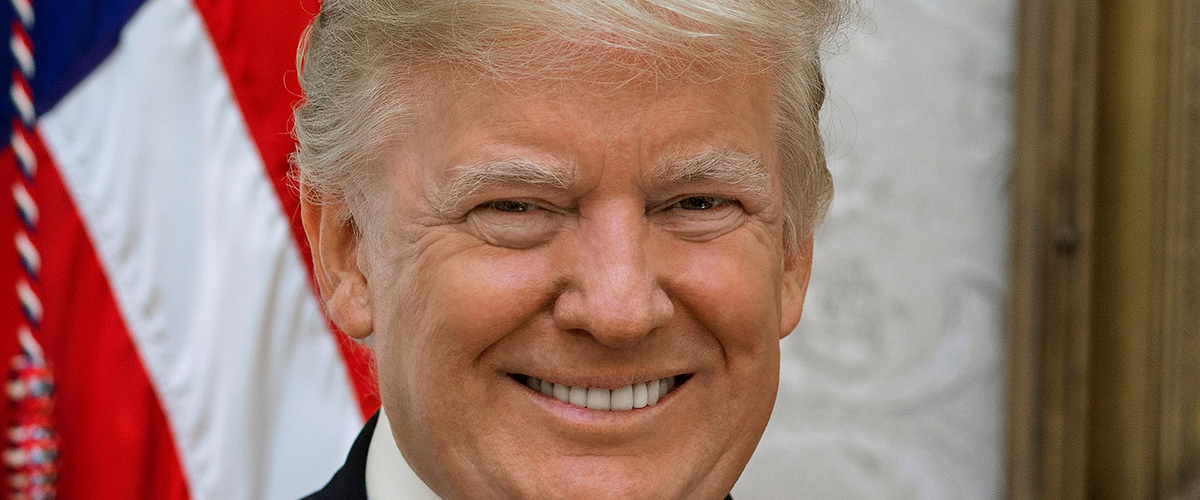Once again, Trump voices support for states’ rights on cannabis regulation.
President Donald Trump stated his administration would continue to leave the decision of marijuana policy up to individual states in the country.
During a press briefing last week, White House reporter Steven Nelson asked Trump to weigh in on whether federal cannabis legalization would take place under Trump’s presidency in light of reports linking legalization and a decrease in opioid use and overdose deaths.
Trump reiterated his support for allowing state-based cannabis policy to continue.
“We’re going to see what’s going on. It’s a very big subject and right now we are allowing states to make that decision,” Trump stated. “A lot of states are making that decision, but we’re allowing states to make that decision.”
Trump answers my question about whether pot will be federally legal during his presidency, considering studies link the policy to less opioid abuse and fewer overdose deaths
‘We are allowing states to make that decision. …A lot of states are making that decision.’ pic.twitter.com/eXtKwjGiyM
— Steven Nelson (@stevennelson10) August 30, 2019
Allowing States to Set Their Own Cannabis Policies
Trump’s comment at the press briefing is not the first time the president has made a public statement on the matter. Back in 2015, while Trump was campaigning for his presidency, he remarked that marijuana legalization should be a “state-by-state” issue.
In June 2018, the president voiced his support for bipartisan legislation sponsored by U.S. Sens. Cory Gardner (R-CO) and Elizabeth Warren (D-MA) that would protect states who have created cannabis regulatory systems from federal intervention.
Gardner released a statement about the president’s promise to support efforts to protect states with legal medical and recreational cannabis systems.
“Since the campaign, President Trump has consistently supported states’ rights to decide for themselves how best to approach marijuana,” Gardner stated.
“…President Trump has assured me that he will support a federalism-based legislative solution to fix this states’ rights issue once and for all,” he added.
The bill titled, Strengthening the Tenth Amendment Entrusting States (STATES) Act, was officially introduced in April 2019 and would amend the federal Controlled Substances Act and allow states to create their own cannabis policies without federal interference. The bill is still active.
Federal Support for State-Based Cannabis Regulation
In the last several months, top White House officials have stated that the decision to legalize cannabis should be left up to states. In August, Jim Carroll, the Donald Trump-appointed drug czar, voiced his opinion on who should be responsible for making decisions on marijuana legalization.
During a visit to Indiana, Carroll told a local reporter he believed states should be allowed to make the decision on cannabis legalization. Anne Hazlett, senior advisor for the Office of the National Drug Control Policy (ONDCP), stated in a recent interview that cannabis legalization is a state decision.
Both federal officials added that more research is necessary for states to make solid decisions. To date, 47 states, plus Washington D.C. have legalized some form of cannabis. While more than 98 percent of the U.S. population lives in a state with some form of marijuana legalization, marijuana in all forms has been illegal at the federal level since 1970 under the Controlled Substances Act.
Under federal law, cannabis and its intoxicating compound THC (tetrahydrocannabinol) fall under the classification of Schedule I substances. This category is the most restricted and reserved for drugs deemed by federal regulation as having no accepted medical use and a high potential for abuse.
While the Trump administration has taken a hands off approach to state-level marijuana laws since former Attorney General Jeff Sessions resigned in 2018, reports last year revealed that the Trump administration had been secretly coordinating a government-wide effort to portray marijuana legalization in a negative light.
Learn more about Trump’s stance on cannabis by visiting 220 Presidential Candidates on Marijuana: The Ultimate Guide. To learn more about the latest news reports on cannabis policy, business or scientific research, check out our news page.






